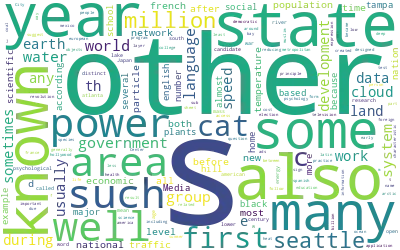Making sense of the census
Neil
Hello. This is 6 Minute English from BBC Learning English. I’m Neil.
Sam
And I’m Sam.
Neil
In recent years, many people have wanted to find out more about where they come from. Millions have tried to trace their family history and discover how their ancestors lived hundreds of years ago.
Sam
The internet has made it much easier to find historical documents and records about your family history – and one of the most useful documents for doing this is the
census
.
Neil
A
census
is an official count of all the people living in a country. It collects information about a country’s population and is usually carried out by the government.
Sam
In Britain, a census has been carried out every ten years since 1801. In 2002, when census records from a hundred years before became available online, so many people rushed to their computers to access them that the website crashed!
Neil
But before we find out more about the census and its related vocabulary it’s time for a quiz question, Sam. Someone who knows a lot about his family history is British actor, Danny Dyer. When BBC television programme, Who Do You Think You Are? researched his family history they discovered that the actor was related to someone very famous – but who was it?
A) King Edward III,
B) William Shakespeare, or
C) Winston Churchill
Sam
Well, I know Danny Dyer usually plays tough-guy characters so maybe it’s C), war hero Winston Churchill?
Neil
OK, Sam, we’ll find out later if that’s correct. Now, although the first British census took place in 1801, other censuses have a much longer history. In fact, the bible story of Mary and Joseph travelling to Bethlehem is linked to a Roman census.
Sam
So, what was the original reason for counting people and what did governments hope to achieve by doing so? Here’s Dr Kathrin Levitan, author of a book on the cultural history of the census, speaking to BBC World Service programme, The Forum:
Dr Kathrin Levitan
I think there were probably two most common reasons. One was in order to
figure out
who could fight in wars, so basically military
conscription
and in order to find out who could fight in wars ancient governments like the Roman Empire had to find out how many men of a certain age there were. And I would say that the other thing that censuses were most commonly used for was for purposes of
taxation
.
Neil
According to Kathrin Levitan, ancient censuses were used to
figure out
– or understand, how many men were available to fight wars.
Sam
The Roman Empire needed a strong army, and this depended on
conscription
– forcing people to become soldiers and join the army.
Neil
The other main reason for taking a census was
taxation
– the system of taxing people a certain amount of money to be paid to the government for public services.
Sam
Ancient and early modern censuses were large and difficult-to-organise projects. They often involved government officials going from house to house, asking questions about the people who lived there.
Neil
But over time governments’ desire to know about, and control, its citizens gave rise to new technologies for counting people.
Sam
Here’s statistician and economist Andrew Whitby explaining how this happened in the US to BBC World Service programme, The Forum:
Andrew Whitby
The 1890 census of the United States was the first in which some kind of electro-mechanical process was used to count people… so instead of armies of
clerks
reading off census schedules and
tabulating
these things by hand, for the first time an individual census record would be punched onto a card… so that there were holes in this card representing different characteristics of the person and then those cards could be fed through a machine.
Neil
Old-fashioned censuses were managed by
clerks
– office workers whose job involved keeping records.
Sam
Thousands of clerks would record the information gathered in the census and
tabulate
it, in other words, show the information in the form of a table with rows and columns.
Neil
The US census of 1890 was the first to use machines, and many censuses today are electronically updated to record new trends and shifts in populations as they happen.
Sam
In fact, so much personal information is now freely available through social media and the internet that some people have questioned the need for having a census at all.
Neil
Yes, it isn’t hard to find out about someone famous, like a TV star.
Sam
Someone like Danny Dyer, you mean?
Neil
Right. In my quiz question I asked Sam which historical figure TV actor, Danny Dyer, was related to.
Sam
And I said it was C) Winston Churchill. Was I right?
Neil
It was a good guess, Sam, but the actual answer was A) King Edward III. And no-one was more surprised that he was related to royalty than the EastEnders actor himself!
Sam
OK, Neil, let’s recap the vocabulary from this programme about the
census
– the official counting of a nation’s population.
Neil
To
figure
something
out
means to understand it.
Sam
The Romans used
conscription
to force men to join the army by law.
Neil
Taxation
is the government’s system of taxing people to pay for public services.
Sam
A
clerk
is an office worker whose job involves keeping records.
Neil
And
tabulate
means show information in the form of a table with rows and columns.
Sam
That’s all for our six-minute look at the census, but if we’ve whetted your appetite for more why not check out the whole episode – it’s available now on the website of BBC World Service programme, The Forum.
Neil
Bye for now!
Sam
Bye bye.


